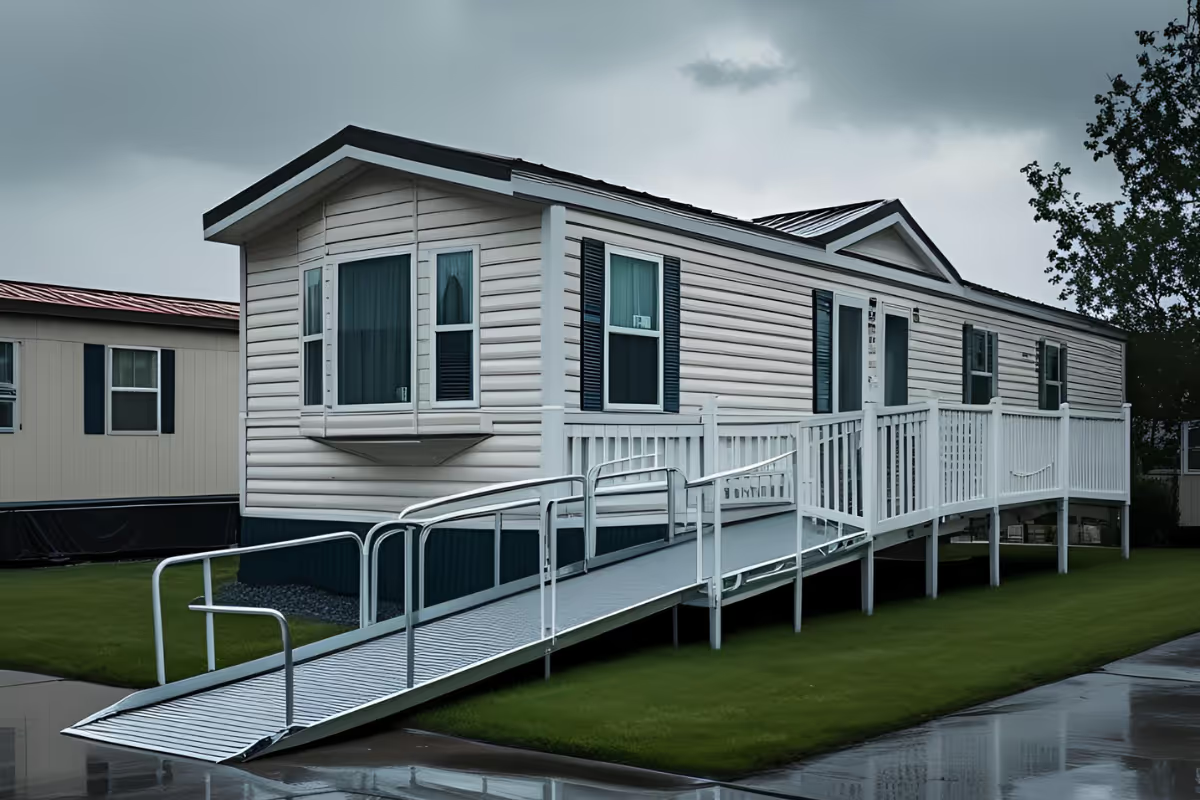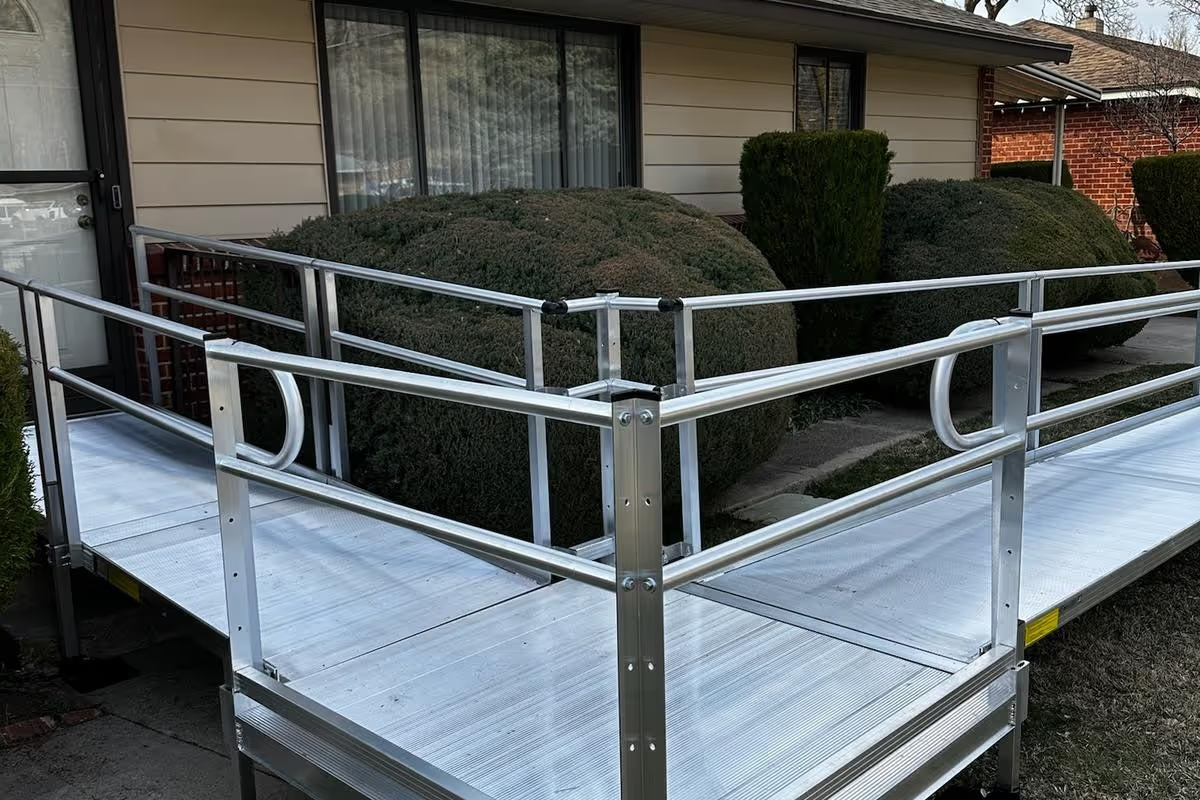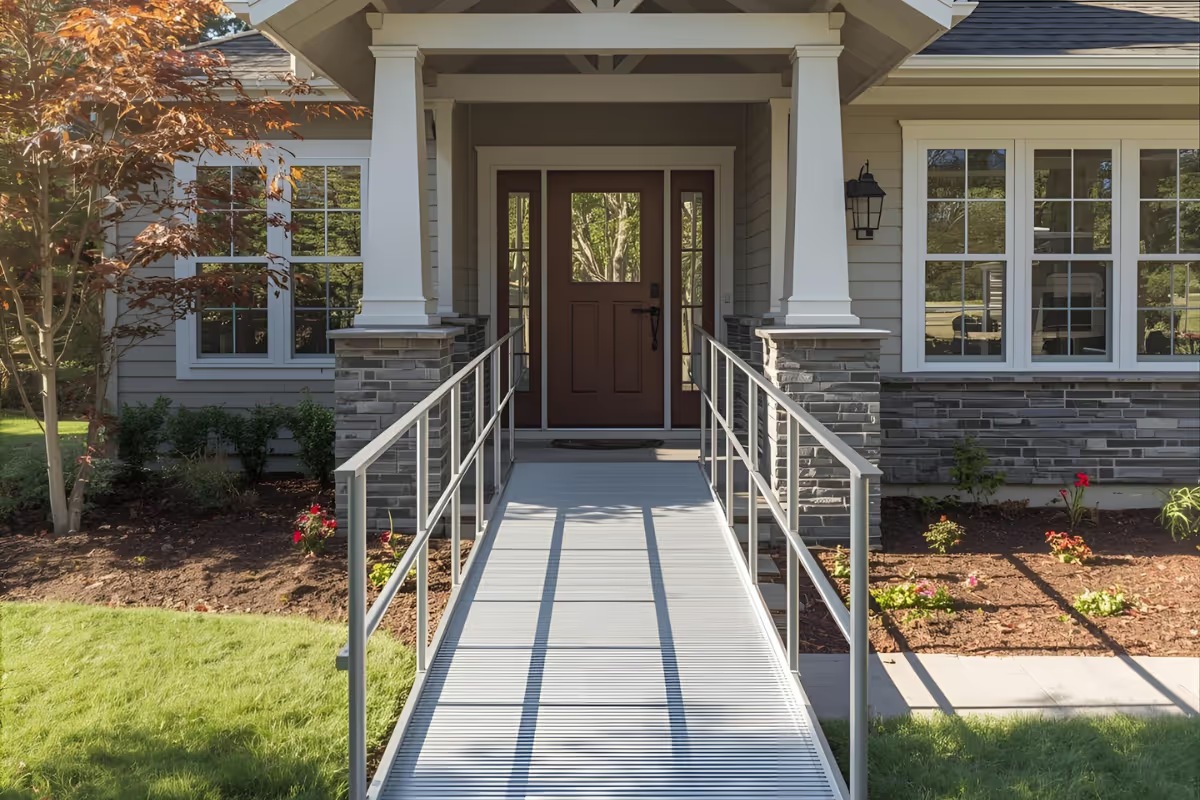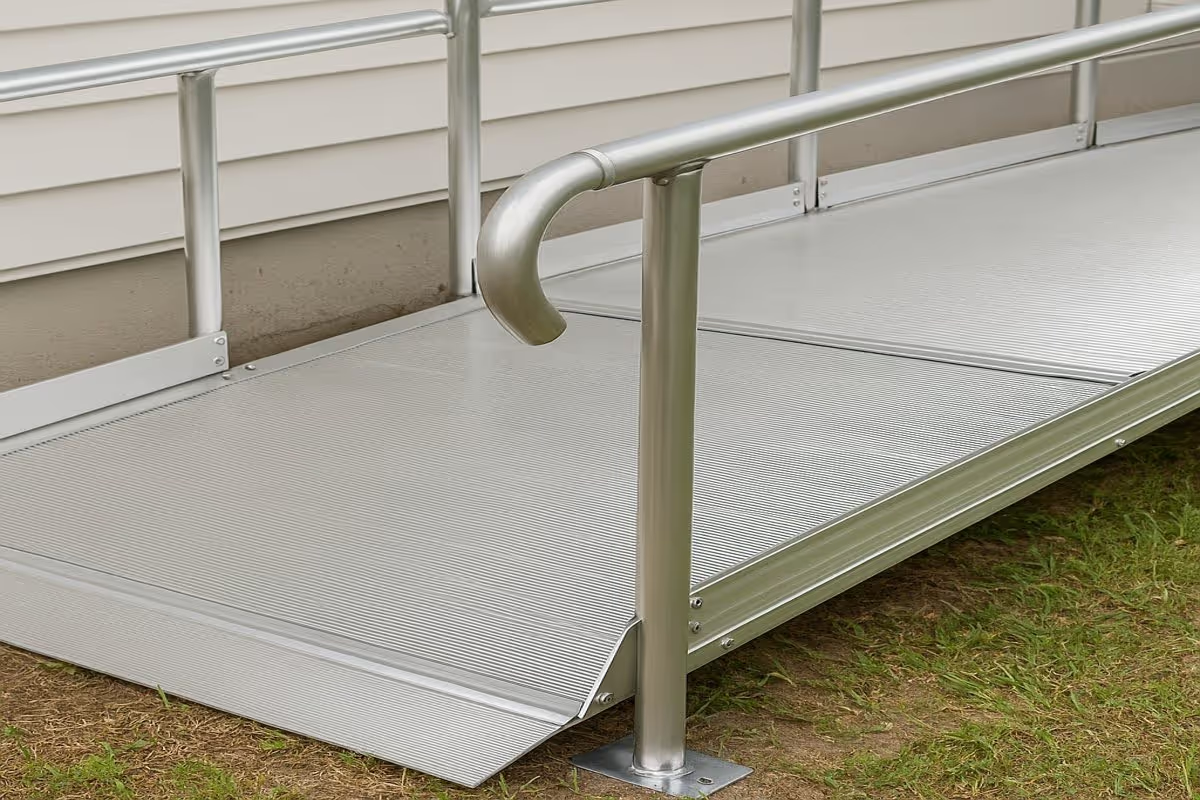Handicap Ramps for Mobile and Manufactured Homes

Accessibility at home is one of the most important parts of maintaining independence and safety. For many people living in mobile and manufactured homes, the front steps or raised entryways can present serious challenges. A ramp provides one of the easiest and most reliable ways to make a home safer, more accessible, and welcoming for all.
If you are considering a handicap ramp for your mobile or manufactured home, it helps to understand the essentials before making a decision. Knowing the different types and factors to be considered makes it easier to choose the right option for your property.
How Ramps for Manufactured and Mobile Homes Remove Accessibility Barriers
Many mobile and manufactured homes are built on elevated foundations with steps leading up to the entryway. While these steps work for many, they can be major obstacles for wheelchair and scooter users, people with walkers or canes, those recovering from surgery, and even parents with strollers.
High entry steps with narrow landings, uneven ground, and limited space for longer ramp runs make daily activities difficult and unsafe. Weather conditions such as snow or heavy rain can make the challenge even greater.
Installing a properly designed modular or portable ramp for mobile and manufactured homes changes everything. It offers safe and reliable access without the need for constant assistance, helping people maintain independence and dignity in their own homes. Beyond convenience, a ramp greatly reduces the risk of falls, which are one of the leading causes of injury for older adults. With thoughtful planning and the right installer, this mobility device can be added without major renovations and built to meet trusted accessibility guidelines for slope, width, and safety features.
Different Types of Ramps
Ramps come in a variety of styles designed to match different needs, budgets, and home layouts. Choosing the right one depends on how permanent you want the solution to be, the features you need, and the space available.
- Modular ramps are among the most popular options. They are durable, resistant to rust, and designed to handle tough weather conditions. They can be configured to fit almost any space and can even be adjusted or moved if you relocate.
- Portable ramps for mobile homes are ideal for temporary use or for people who need access to multiple entry points. They can be folded away when not in use, making them convenient for storage. Although less sturdy than a permanent ramp, they are a practical option for certain situations.
- Threshold ramps are small, wedge-shaped ramps that make it easier to cross over short rises such as doorway lips or sliding door tracks. They are especially useful inside the home or at exterior doors with a minimal step.
- Telescoping or folding ramps are designed for flexibility and easy storage. They can extend to cover stairs when needed and then fold or collapse down for transport or storage, making them ideal for travel or occasional use.
With so many options available, homeowners can find a ramp that fits both their mobility needs and the layout of their manufactured or mobile home.
Important Considerations When Selecting a Ramp
Choosing the right handicap ramps for your mobile and manufactured homes comes down to your specific needs and the layout of your property. Here are the key factors to keep in mind:
Mobility Needs
A power scooter or wheelchair requires a sturdier and wider ramp than a walker or cane. Daily use also calls for a more permanent solution such as aluminum or concrete.
Available Space
Many mobile and manufactured homes sit on smaller lots. Modular aluminum ramps with platforms and turns can fit into tighter spaces. Telescoping or folding ramps are great for temporary use, while threshold ramps work well for small rises at entryways.
Aesthetics, Budget, and Maintenance
Wooden ramps can blend nicely with your home but need regular upkeep. Aluminum ramps resist weather and are low maintenance but may cost more. Concrete ramps offer lasting strength and stability, but they come at a higher cost and cannot be modified once in place.
Safety and Compliance
Ramps should follow recommended slope ratios and include features like non-slip surfaces and sturdy handrails. With professional installation, you can trust they will remain safe and durable.
For a more in-depth guide about ramps, read our comprehensive resource to learn more about their features, cost, installation, and maintenance tips.
Make Your Home Accessible with Western Stairlifts
A handicap ramp has the power to transform a mobile or manufactured home into a space that feels safe, welcoming, and easy to enjoy. It supports independence, reduces the risk of falls, and provides peace of mind for both individuals and families.
At Western Stairlifts, we know that every home and family is unique. Our team specializes in accessibility solutions that are tailored to your needs, from ramps and lifts to ongoing support that keeps you confident in your own space.
If you are ready to explore your options, schedule a free consultation with us today. We will evaluate your home, listen to your needs, and recommend the solution that makes daily life safer and more comfortable.
.svg)
.png)



